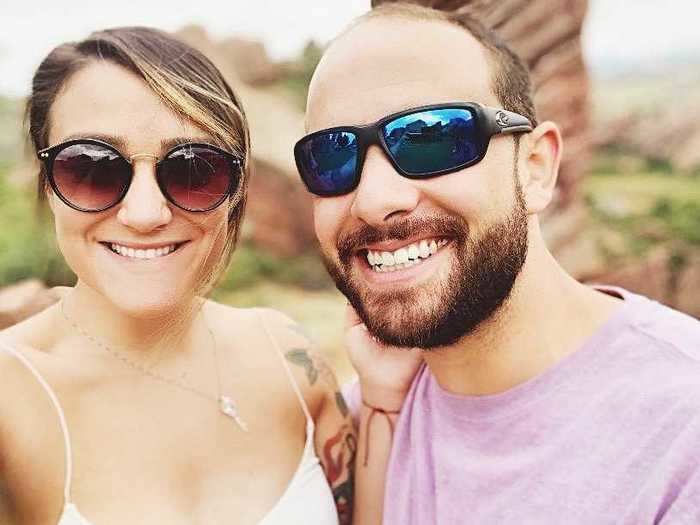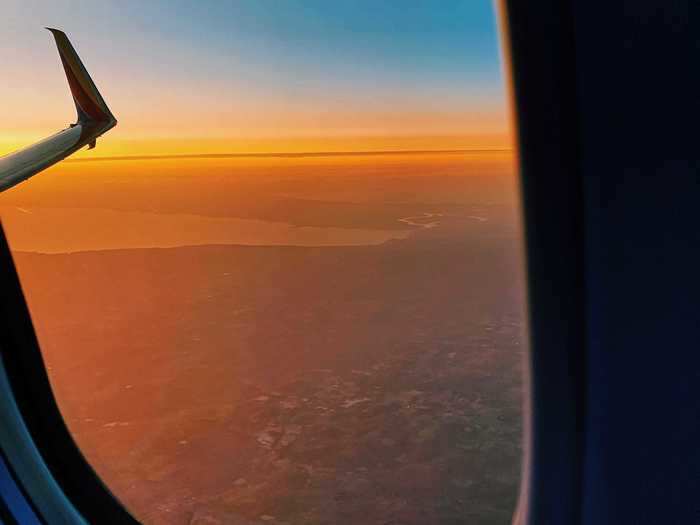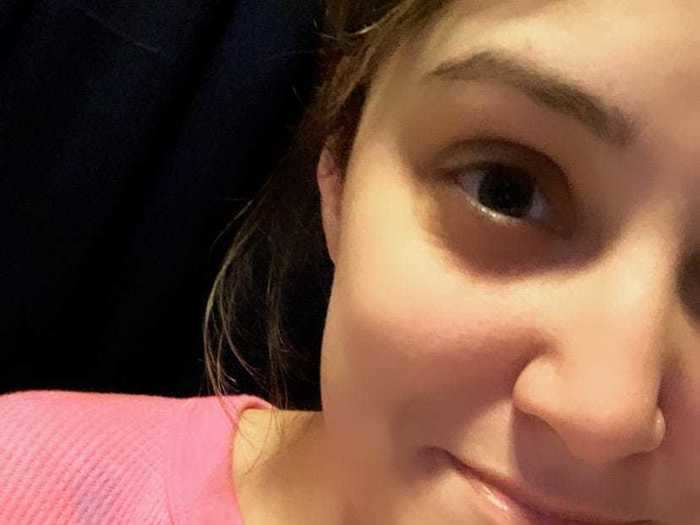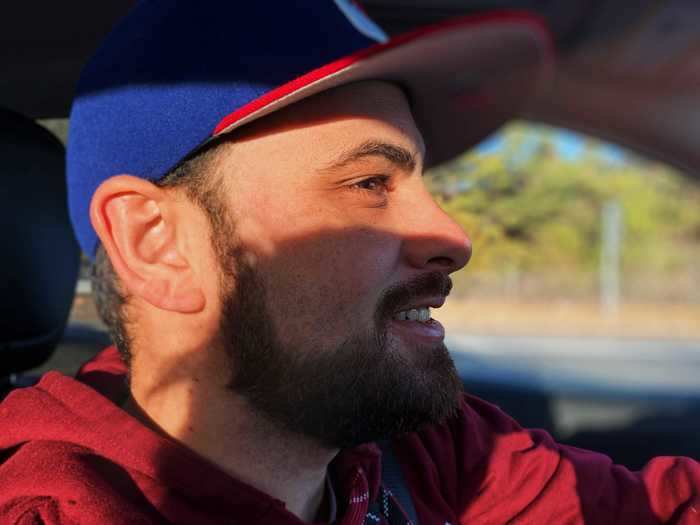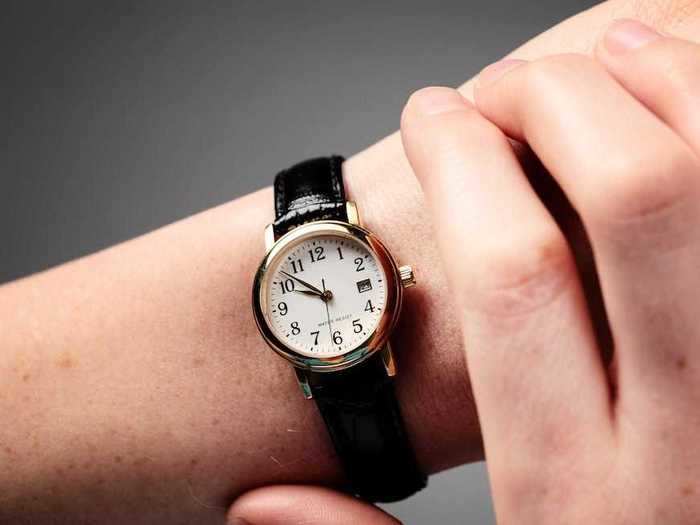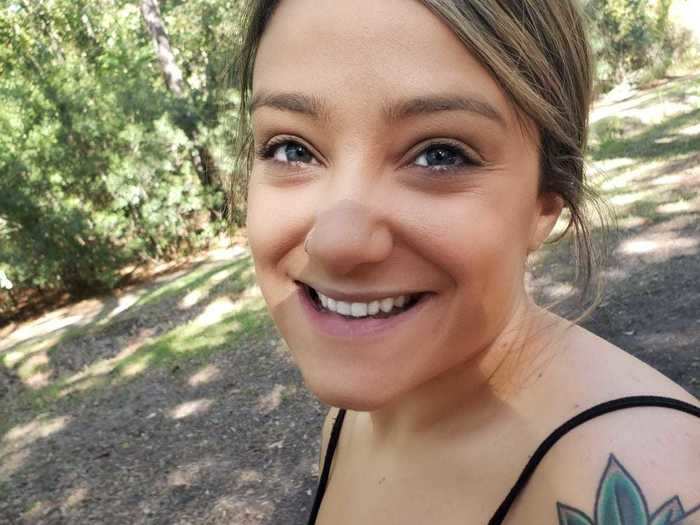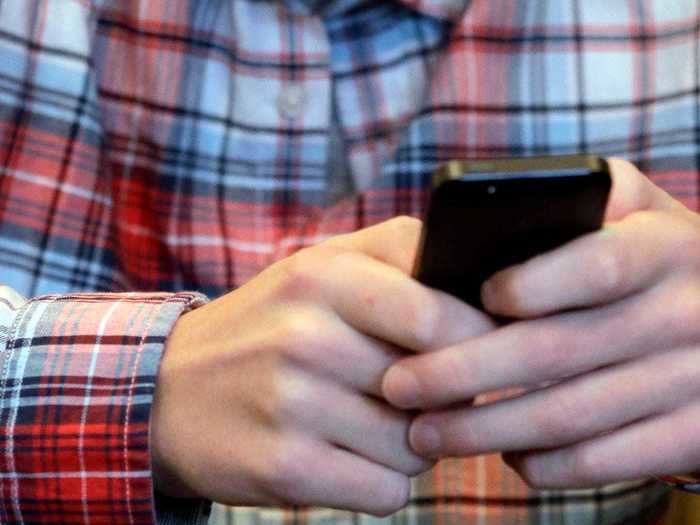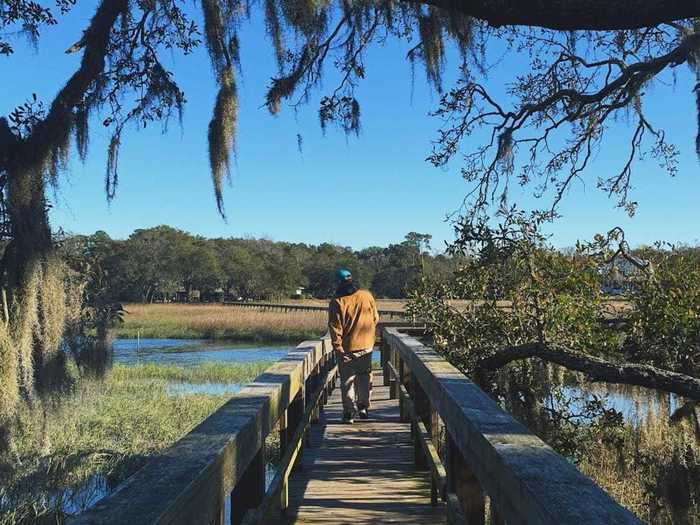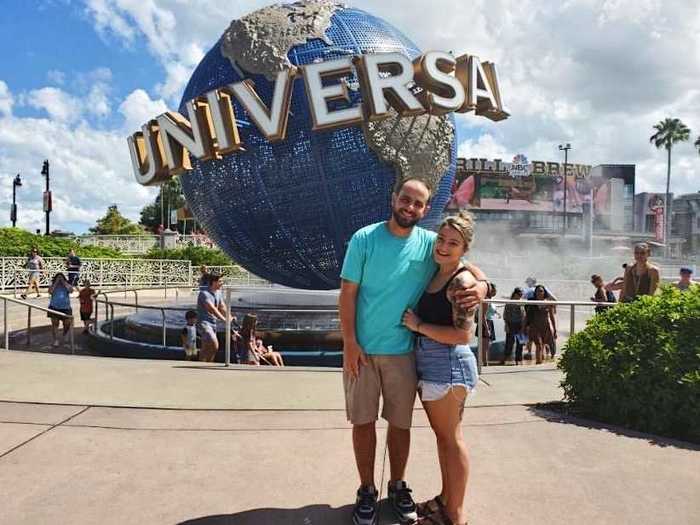Caitlyn Hitt and her partner have been doing the long-distance thing for a year.Courtesy of Caitlyn Hitt
- Caitlyn Hitt lives in Massachusetts and has been long-distance dating her Florida-based boyfriend for the past year.
- Since the COVID-19 crisis put a stop to their usual visits, the young couple came up with different ways to stay connected.
- They schedules times to video chat — and avoid multitasking during calls so they can give each other their full attention.
- Hitt recommends avoiding texting too much because it can feel impersonal and be misinterpreted.
- Visit Business Insider's homepage for more stories.
Weeks ago, I said goodbye to my boyfriend outside Orlando International Airport after one of our usual visits back and forth. If I had known then what I know now, I would have kissed him longer or hugged him harder.
I landed back in Massachusetts — where I've been living and working as a writer for most of our relationship — in a sea of uncertainty. COVID-19, the illness caused by the novel coronavirus, took hold of my state, as well as my home state of New York, in what seemed like the blink of an eye. Businesses closed, work moved to the home, and states issued stay-at-home orders and restricted travel. I could have stayed in Florida longer, but work was calling, and he had finals to focus on.
Before COVID-19, my boyfriend and I had been traveling more than 1,300 miles back and forth to see each other pretty frequently. About a year ago, we had reconnected after a 10-year absence from each other's lives. (It started with a DM, as all great love stories do.) Although we're both from different parts of Long Island, New York, and went to undergrad together in upstate New York from 2008 to 2010, we had gone our separate ways for several years.
When we reconnected, I'd been living in Brooklyn for five years and was preparing to head to New England. He'd moved to Florida after a stint in the Navy in California and was pursuing a business degree after leaving college early the first go-around. Initially, neither of us thought our messages back and forth would lead to much. Just shy of a year later, though, we're together, very much in love, and planning to finally be in the same place in eight months or so. It may not sound like the near future, but to us it's nothing at this point.
Read the original article on
Business Insider
Don't take your quality time for granted.
The author and her partner.
Courtesy of Caitlyn Hitt
I've learned a lot of lessons about my relationship in self-isolation, but perhaps the most important is to never again take our time together for granted. I'll take less-than-perfect trips, all the layovers in the world, and perfectly imperfect dates. I just want to be back together again, or know when that'll be possible.
Isolation has been tough, but people in long-distance relationships are used to challenges. All we can do is make the best of the situation and anxiously await the moment we're allowed to reunite.
Caitlyn Hitt is a New York native living her dream of working as a writer and editor. She's a hockey-loving bagel snob who would do anything for Beyoncé. Caitlyn spent most of her career in entertainment before expanding into food, relationships, mental health and more. Find her on Twitter (@nyltiaccc).
Don't forget how far you've come.
A photo from one of the author's many plane trips.
Courtesy of Caitlyn Hitt
Some days are harder than others. Throughout isolation, my partner and I have been making post-coronavirus plans and countdowns… but then the governors of our respective states will extend social distancing guidelines. It's happened more than once, and probably will again. I hope not, but I'm just trying to be real with myself.
On the heavier days, I remind myself of everything we've been through. Long stretches apart, trips that didn't go as planned, personal issues — you name it, we've dealt with it. This is just another hurdle to clear together, while apart.
Little things go a long way.
The tie-dye onesie.
Courtesy of Caitlyn Hitt
It's always the little things that matter in any relationship, but in a long-distance relationship, they're huge. Celebrate milestones that may come up during isolation, and find small ways to let your partner know you care and are thinking about them. (Did my boyfriend just send me a tie-dye thermal onesie? Sure did. Have I been living in it? Also yes.)
I'm telling you, it's the little things.
Go deeper.
Hitt and her boyfriend have had deep talks on their long car rides.
Courtesy of Caitlyn Hitt
My boyfriend and I always talk a lot, but during self-isolation, we're now talking more than ever. It didn't take long to tire of conversations about nothing or ones that weren't going anywhere: No, I don't have any big plans. Yes, I'm working. I'm fine… just bored.
If you've got more time on your hands to talk, try to go deeper. Ask your partner questions like what their dream job is, what animal they'd be if they had to choose, what their last meal on Earth would be if they could pick. The questions can be deep, introspective or just straight-up funny; just try to stop having the same conversation over and over again.
In long-distance relationships, it can take time to get a good feel for who the person you're with really is or where you stand as a couple because you're not physically together all the time. Get creative. During a long road trip, I ran through the infamous 36 questions that lead to love written about in The New York Times. I've also turned to "The Book of Questions."
Make time.
Prioritize making time for each other every day.
Ptnphoto/Shutterstock
Recently, someone stressed to me the importance of being present during isolation. When you're working, be at work. When you're doing something else, like talking to your partner, be present in the conversation. Don't do other things while you're talking, no matter how good a multi-tasker you think you are.
One of the first arguments my boyfriend and I had in isolation was about distractions during "our time." Not feeling like a priority to someone important to you really sucks. Give people your undivided attention.
Take advantage of FaceTime.
Connecting face to face, even over your phones, can help you feel closer.
Courtesy of Caitlyn Hitt
Not being able to physically see each other is tough, but technology is a powerful tool. A few weeks ago, my boyfriend and I started FaceTiming regularly. We set a time and try to stick to it. Things come up, even in isolation, but we try to communicate and reschedule. Face-to-face interaction really helps you feel close even when you're not.
Video chat just to talk, or set up FaceTime or Zoom dates. It's better than not seeing each other at all.
Text, but not exclusively.
Texting is a nice way to check in.
Nam Y. Huh/AP
Even before the pandemic, my boyfriend and I would tend to text all day and forego phone calls. Here's the thing: Texting is impersonal, and things get lost in translation. I can't tell you how many fights we've had over how one person perceived the other's text.
Texting too much also leaves you with nothing to talk about when you do get time to hop on the phone. Stay in touch to check in or say I love you, but don't let it be your main form of communication.
Long-distance relationships are all about adapting and overcoming.
A photo from one of Hitt's visits with her boyfriend.
Courtesy of Caitlyn Hitt
We did for the better part of a year, and we're doing it now, though the uncertainty is new. The first week or two was the hardest. There were nonsense fights about texting too much or too little, or comments lost on text, and moments when it felt like maybe long-distance was too hard. But we've worked out the kinks… most of them, anyway.
We may not be able to physically be together, but there's a lot we, and other people in long-distance relationships, can do to feel connected even in isolation.
Long-distance was never easy, but we worked out a nice routine.
The author and her partner.
Courtesy of Caitlyn Hitt
We switched off traveling and rarely went for more than three or four weeks without a visit. When the coronavirus arrived in the United States, we were blissfully unaware and in the middle of planning our first anniversary — where we'd go, what we'd do and for how long.
Now, we just hope to see each other again sooner rather than later.

